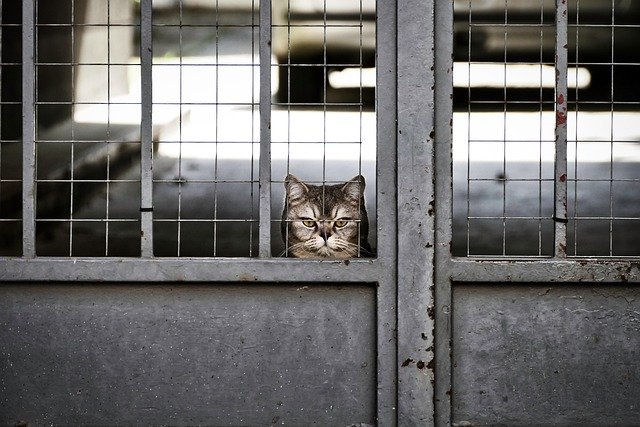Finding and Adopting Kittens Near You: A Practical, Step-by-Step Guide
Bringing a kitten into your home is an exciting journey that begins with knowing where to look and how to prepare. Whether you're a first-time adopter or adding another furry friend to your family, understanding the adoption process, evaluating potential companions, and setting up a safe environment are essential steps. This guide walks you through each stage of kitten adoption, from locating reputable sources to ensuring your new companion thrives in their forever home.

Adopting a kitten is a rewarding experience that requires careful planning and informed decision-making. From identifying trustworthy adoption sources to preparing your living space, each step plays a crucial role in ensuring a smooth transition for both you and your new feline friend. This comprehensive guide provides practical insights into the entire adoption journey, helping you make choices that benefit your household and your future pet.
Where to Search: Shelters, Rescue Groups, and Online Listings
Finding the right kitten starts with knowing where to look. Local animal shelters are often the first stop for prospective adopters, offering a variety of kittens in need of homes. These facilities typically provide medical care, including initial vaccinations and spaying or neutering, before adoption. Rescue groups, both breed-specific and general, operate through foster networks and often have detailed information about each kitten’s personality and background. Online platforms have become increasingly popular, connecting adopters with shelters, rescues, and individuals rehoming kittens. Websites dedicated to pet adoption allow you to filter searches by age, location, and specific traits. When using online listings, verify the legitimacy of the source and arrange to meet the kitten in person before committing. Local veterinary clinics and community bulletin boards may also have information about kittens available for adoption in your area.
Evaluating Kittens: Health, Temperament, and Age
Once you’ve identified potential adoption sources, evaluating individual kittens becomes the next critical step. Health indicators include clear eyes, clean ears, a shiny coat, and active behavior. A healthy kitten should be playful, curious, and responsive to interaction. Ask about the kitten’s medical history, including any treatments, vaccinations, or known health issues. Temperament varies widely among kittens; some are outgoing and social, while others may be shy or reserved. Spend time observing how the kitten interacts with littermates, people, and their environment. Age is another important consideration. Kittens younger than eight weeks should ideally remain with their mother and siblings to develop proper social skills. Older kittens, typically three to six months, may already have established personalities and require less intensive early socialization. Consider your household’s activity level and experience when matching temperament and age to your lifestyle.
Adoption Process: Fees, Requirements, and Paperwork
Understanding the adoption process helps set realistic expectations and ensures you’re prepared for each step. Most shelters and rescue organizations require an application that asks about your living situation, experience with pets, and household composition. Some may conduct home visits or request references. Adoption fees vary depending on the organization and location. Shelters typically charge between 50 and 150 dollars, which often includes initial veterinary care such as vaccinations, deworming, microchipping, and spaying or neutering. Rescue groups may have similar fee structures, though some breed-specific rescues charge higher amounts. Private adoptions or rehoming situations may involve lower fees or donations. Paperwork generally includes an adoption contract outlining your responsibilities as a pet owner, medical records, and sometimes a return policy if the adoption doesn’t work out. Be prepared to provide identification and proof of residence. Processing times can range from same-day approvals to several days, depending on the organization’s protocols.
| Organization Type | Typical Fee Range | Included Services |
|---|---|---|
| Animal Shelters | 50–150 dollars | Vaccinations, spay/neuter, microchip, initial exam |
| Rescue Groups | 75–200 dollars | Vaccinations, spay/neuter, microchip, foster care assessment |
| Breed-Specific Rescues | 100–300 dollars | Full medical care, behavioral assessment, breed-specific support |
| Private Rehoming | 0–100 dollars | Varies; may include supplies or minimal medical records |
Prices, rates, or cost estimates mentioned in this article are based on the latest available information but may change over time. Independent research is advised before making financial decisions.
Preparing Your Home: Supplies and Kitten-Proofing
Before bringing your kitten home, creating a safe and welcoming environment is essential. Basic supplies include food and water bowls, high-quality kitten food, a litter box with appropriate litter, a scratching post, and a comfortable bed. Toys that encourage natural hunting behaviors, such as feather wands and small balls, help with mental stimulation and physical exercise. Kitten-proofing your home involves removing or securing potential hazards. Electrical cords should be tucked away or covered, as curious kittens often chew on them. Secure cabinets containing cleaning supplies, medications, or other toxic substances. Remove small objects that could be swallowed, and ensure windows and balconies have secure screens. Houseplants can pose risks; many common varieties are toxic to cats. Designate a quiet room where your kitten can acclimate during the first few days, equipped with all necessary supplies. This space provides security while they adjust to new surroundings and reduces stress during the transition period.
Post-Adoption Care: Vet Visits, Vaccinations, and Socialization
Once your kitten is home, ongoing care ensures their health and well-being. Schedule a veterinary appointment within the first week to establish a health baseline and discuss vaccination schedules. Core vaccines for kittens typically include protection against feline distemper, calicivirus, and rhinotracheitis, administered in a series starting around six to eight weeks of age. Your veterinarian will also recommend deworming and flea prevention protocols. Nutrition plays a vital role in growth and development; feed age-appropriate kitten food formulated to meet their increased energy and nutrient needs. Socialization during the early months shapes your kitten’s behavior and confidence. Gradually introduce them to various people, sounds, and experiences in a positive, controlled manner. Handling their paws, ears, and mouth regularly prepares them for grooming and veterinary exams. Litter box training is usually instinctive, but consistency and cleanliness encourage proper habits. Monitor your kitten’s behavior and health closely during the first few weeks, watching for signs of illness such as lethargy, loss of appetite, or changes in litter box habits.
Adopting a kitten is a commitment that brings joy and companionship for years to come. By thoroughly researching adoption sources, carefully evaluating potential companions, understanding the process and associated costs, preparing your home, and providing attentive post-adoption care, you set the foundation for a happy, healthy relationship. Each step requires thoughtful consideration, but the reward of welcoming a new feline family member makes the effort worthwhile.




